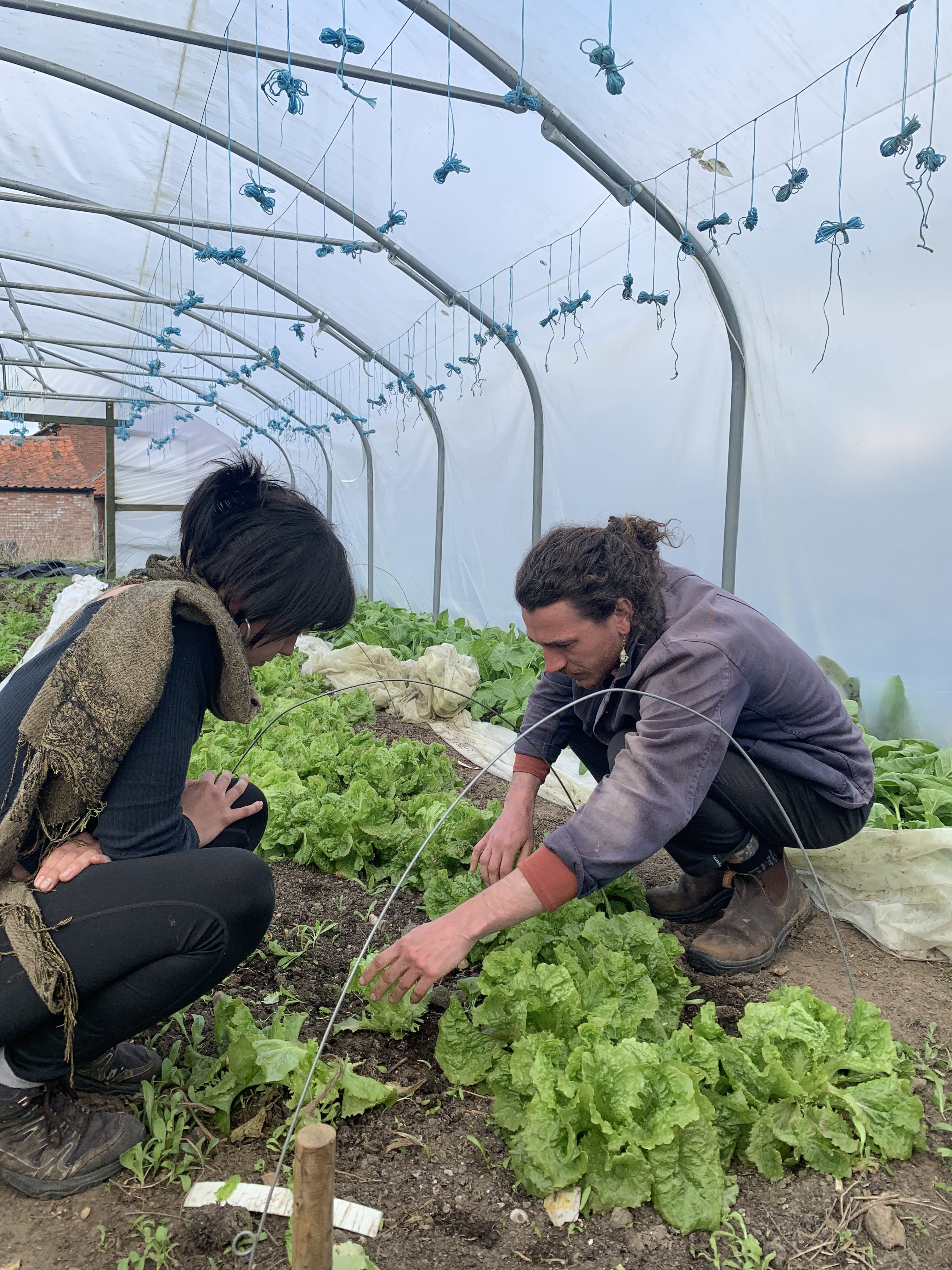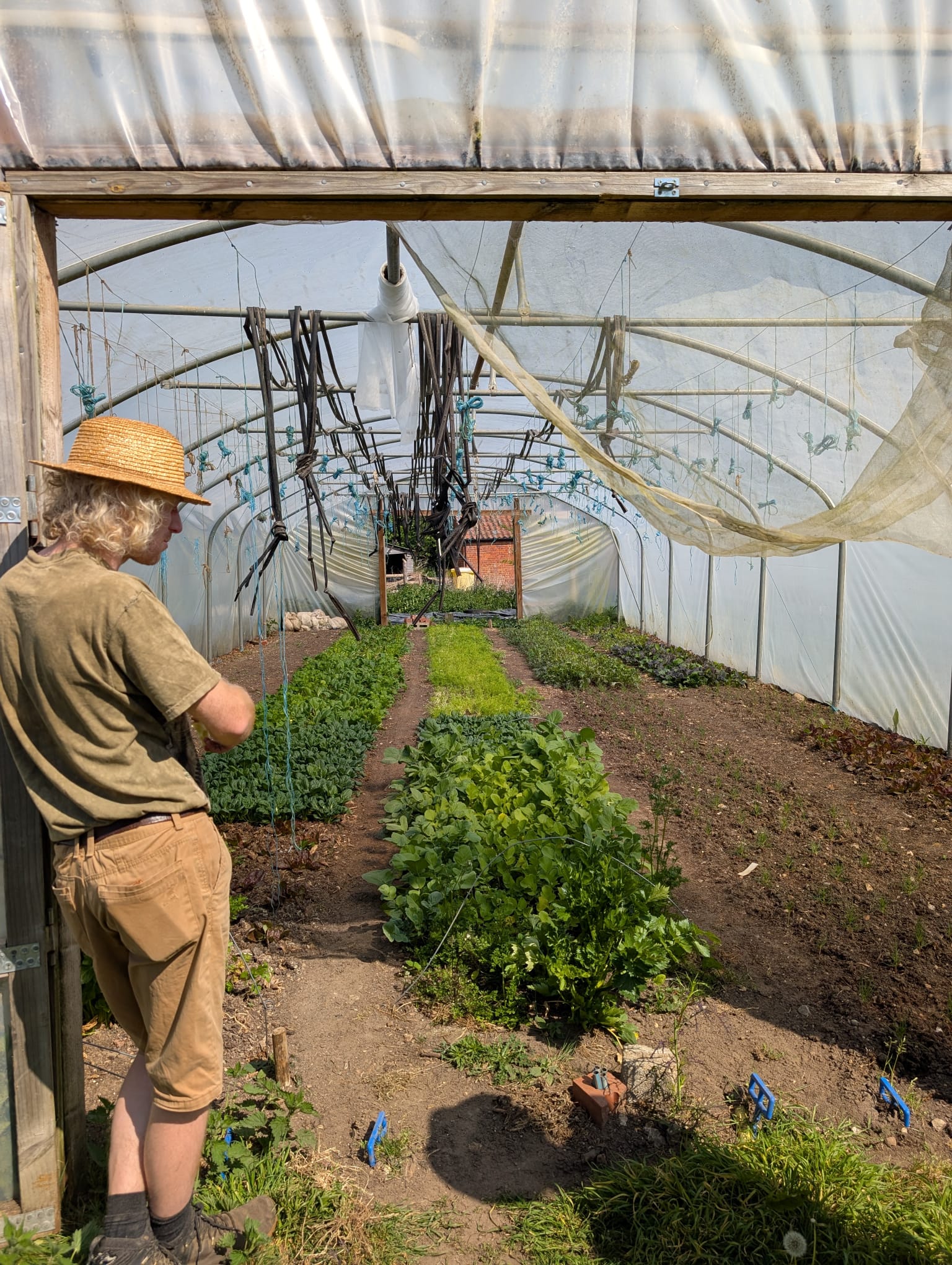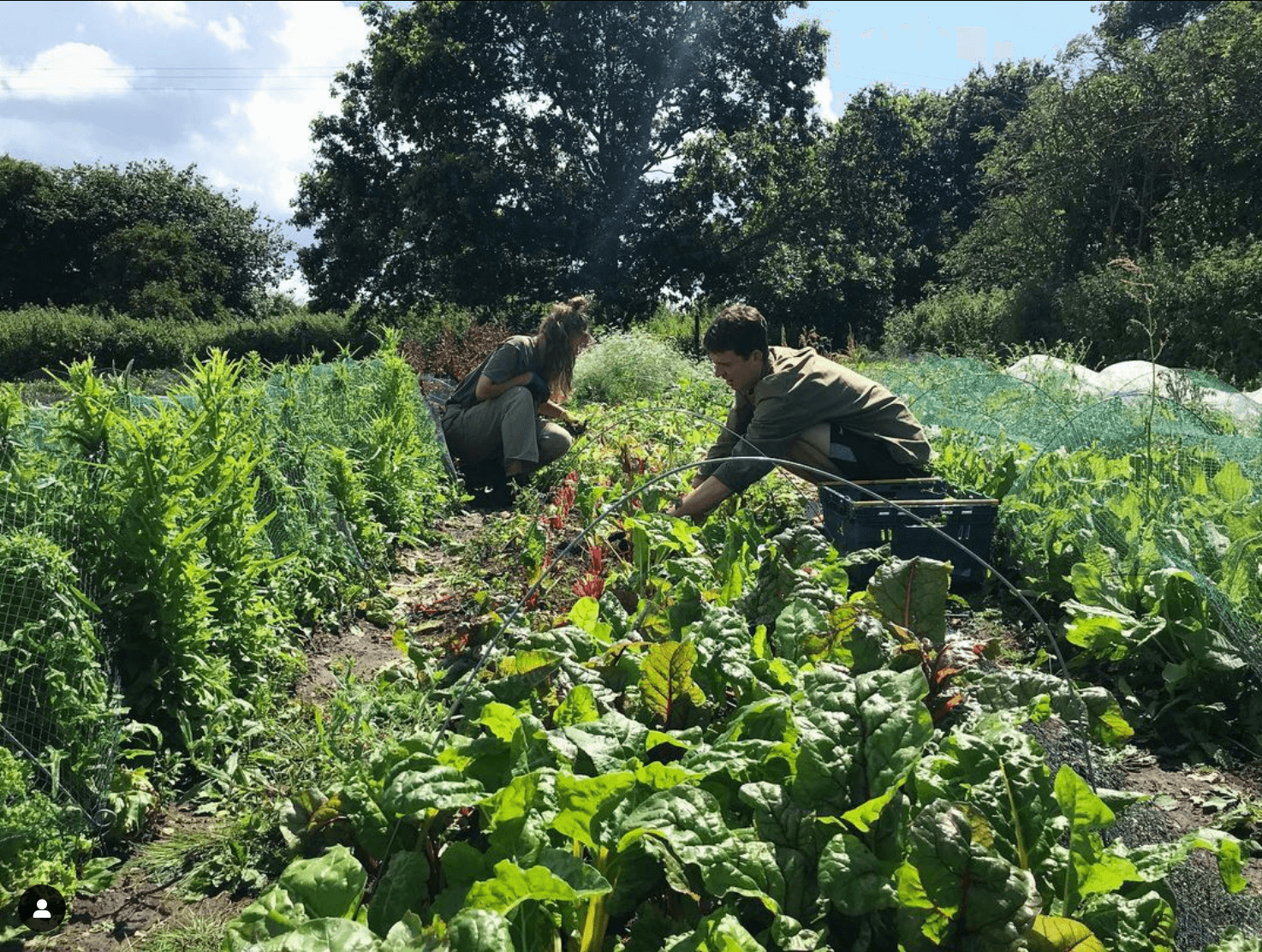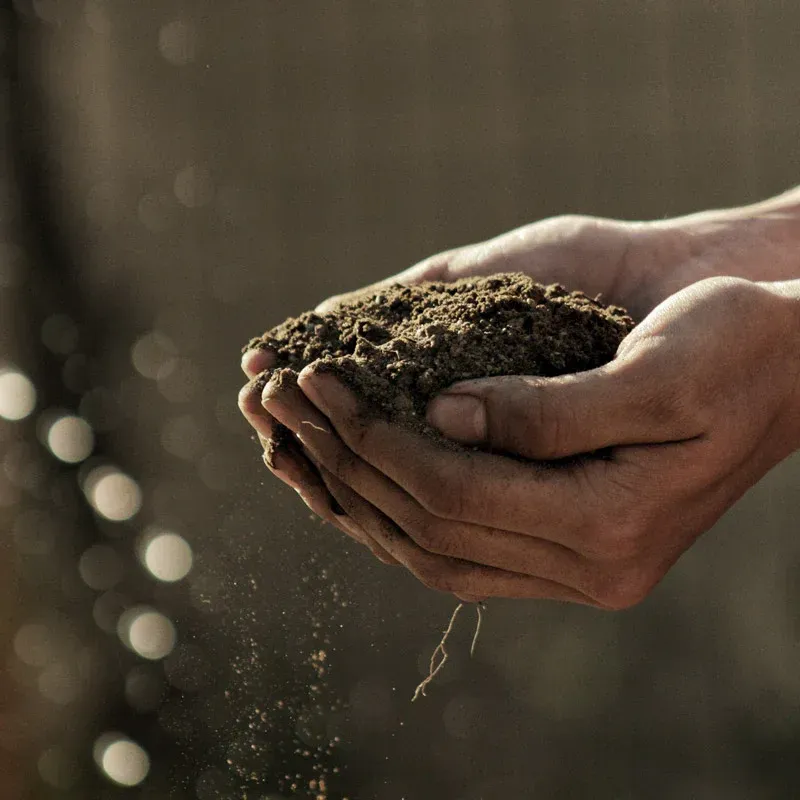
Our Market Garden
Regenerative Agriculture in the heart of Norfolk

We have a Community Market Garden
(Volunteer days are Thursdays 10-1, NR20 5NN - get in touch for more info!)
It's a beautiful little spot of Organic goodness in the middle of Norfolk. Bintree to be precise. Here we grow all sorts of produce that makes up the bedrock of our weekly veg box.
We want to support the next generation of organic growers here in Norfolk. But, we soon came to realise that access to capital and land was a major blocker for most new growers. To set up, we had support from you, the people during our Crowdfunders (legends), and from the Oxford Real Farming Trust (legends).
A better food system starts with farmers
The average UK farmer is 60 years old – one of the highest across all professions. This urgently needs to change for a sustainable food future.
Every purchase from our online farm shop helps train the next generation of organic growers.

Get Involved
Our volunteer days run every Thursday 10am-1pm - come and see what we're all about and learn how to grow. Contact us for more details, but it's at NR20 5NN - look for the big metal bar gate on the left past valley farm house on the way out of Bintree.
We’re told that soil depletion is a by-product of intensive farming, that it’s a necessary evil that we can outrun. Considering it can take 500 to 1,000 years for soil to form from its base material, namely rock, it seems like a foolhardy attitude to have. If we’re this reliant on healthy soil, should we not be taking better care of it? Particularly as the financial case against slower, more considerate farming isn’t really one at all?
A world in your hands
Pick up a handful of earth and look at it closely. It might contain the odd worm or a few tiny insects. It might crumble in your fingers or clump into clay-like blobs. What you can’t see with the human eye is the world of microorganisms, cohabiting with each other. Their job is to break down organic matter, putting nitrogen, carbon and other vital substances back into the ground. It’s part of a crucial cycle that supports life on our planet.
What’s in my food?
Non-organic farming gives better yields, so I get more for my money, right?
Think again. A U.S. study in 2004 compared the nutritional data from 1950 and 1999 of 43 different vegetables and fruits and found ‘reliable declines’ in key nutrients. This is one of those instances where more is less.
According to the Soil Association, UK regulations allow 300 pesticides to be used in non-organic farming and, in 2016, over 16,600 tonnes of it were used to control pests, kill weeds and protect crops from disease. In 2017, government testing found pesticide residues in 47% of British food.

What if this was Normal for Norfolk ?







